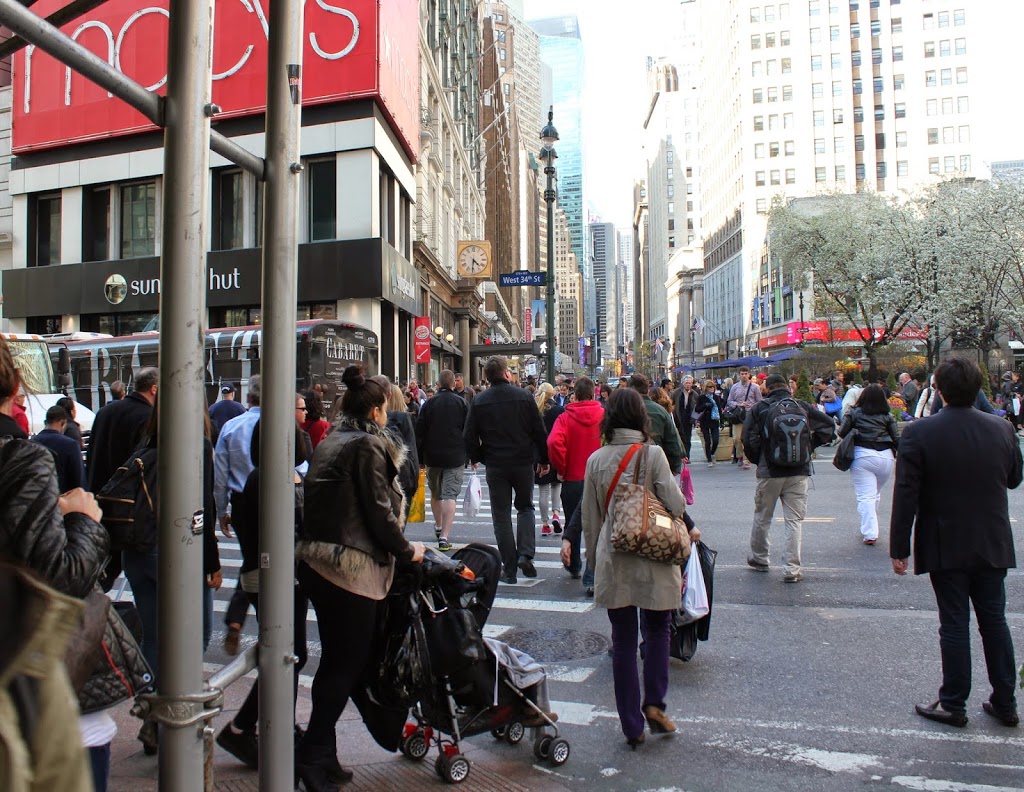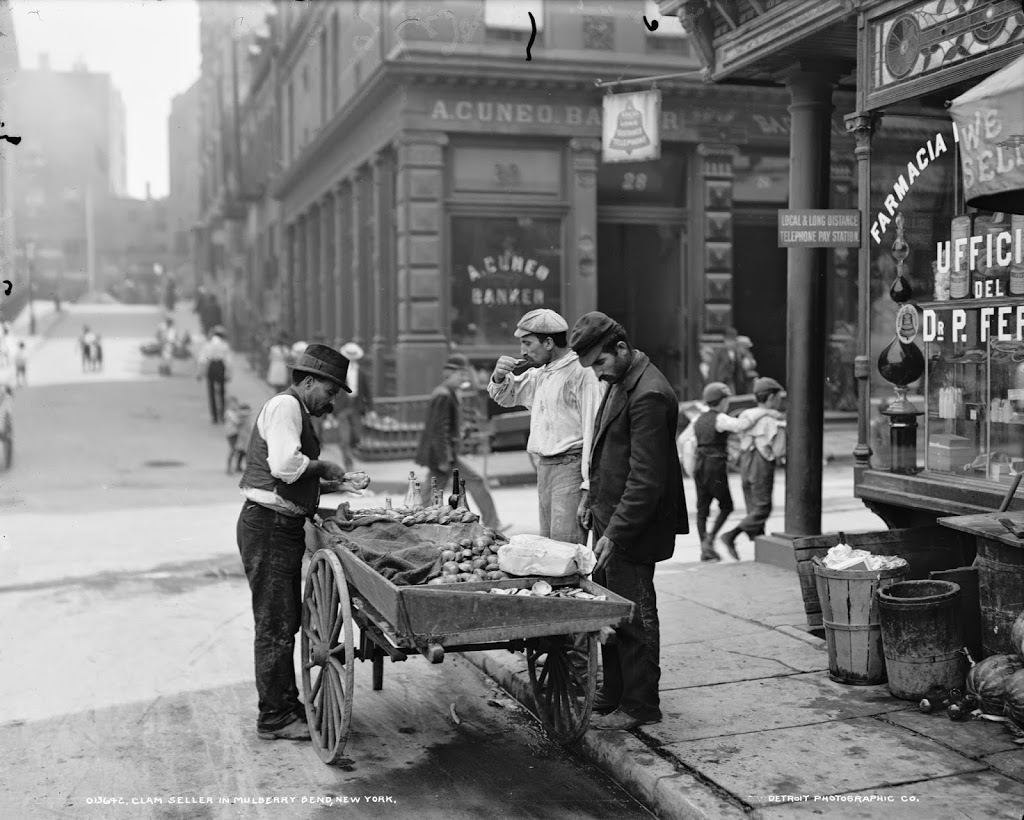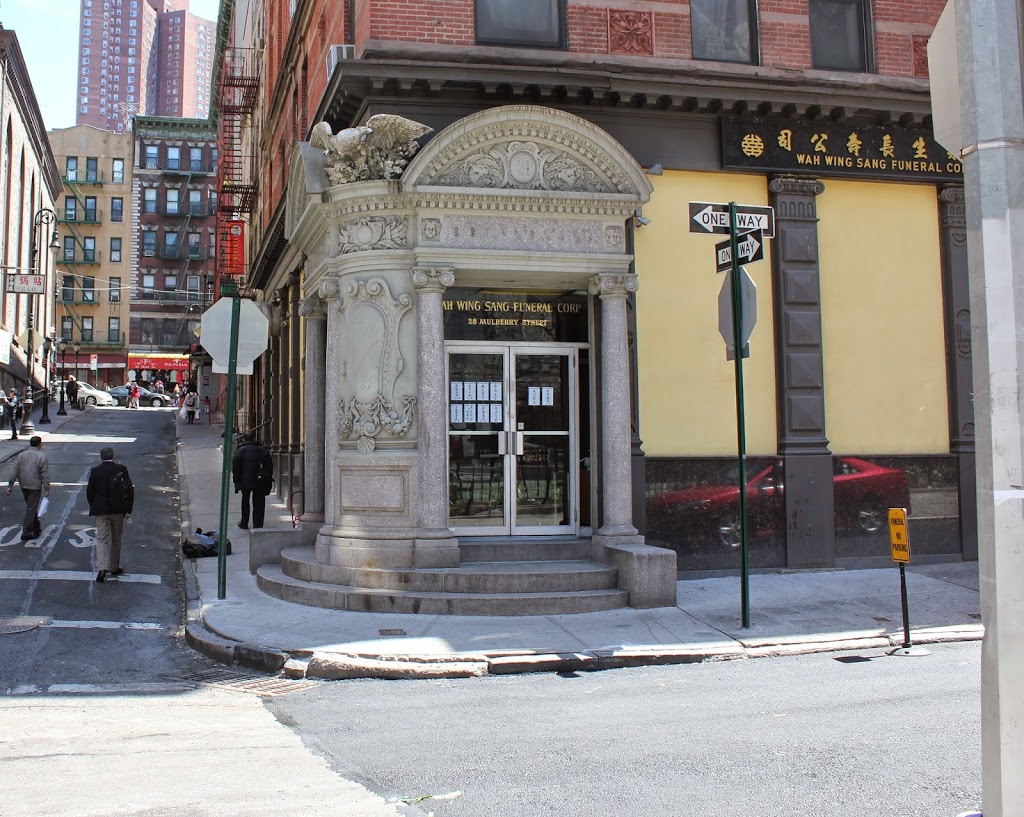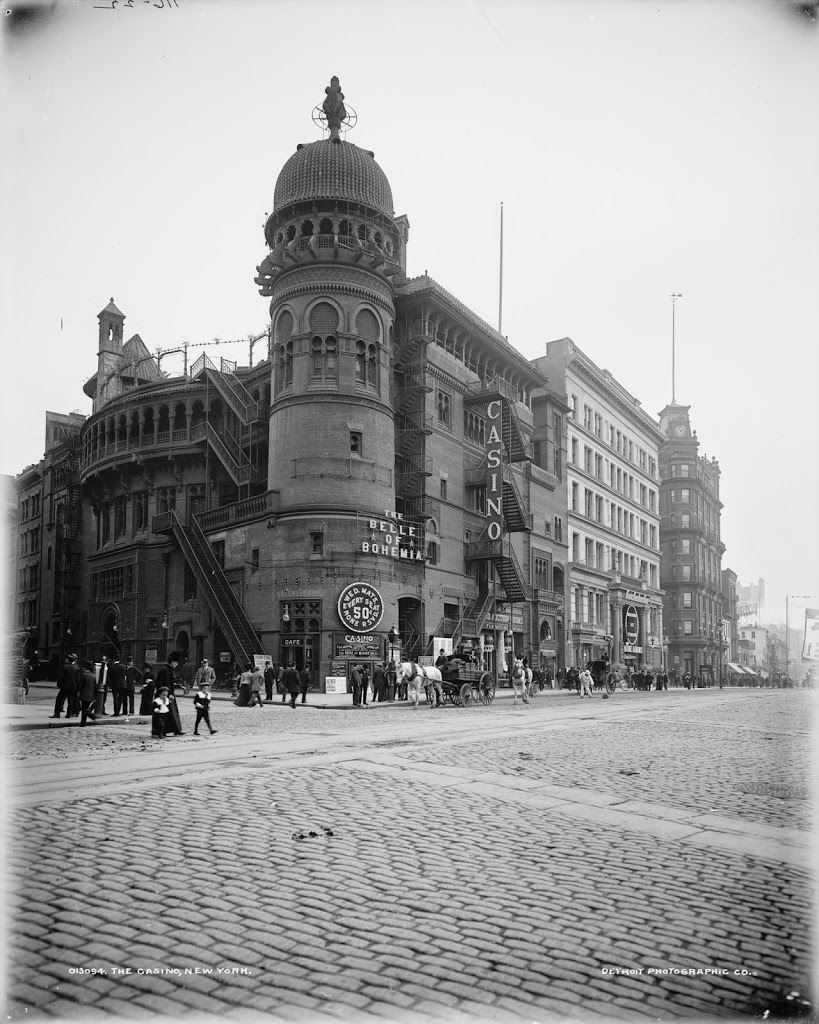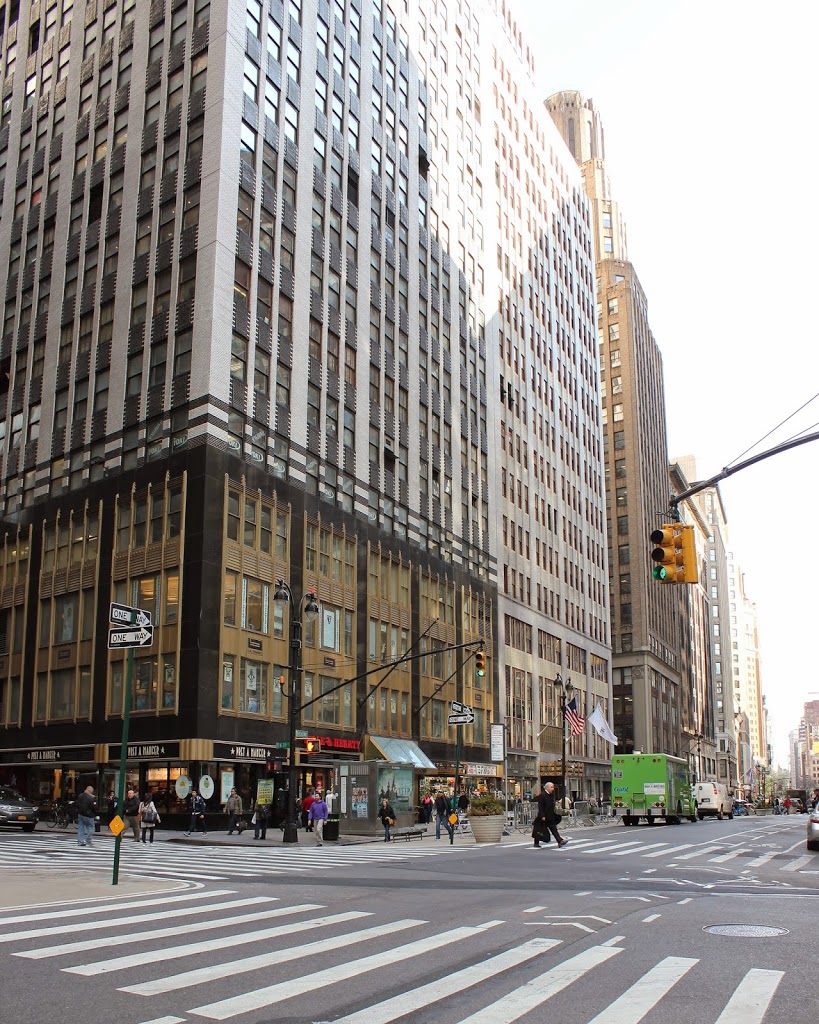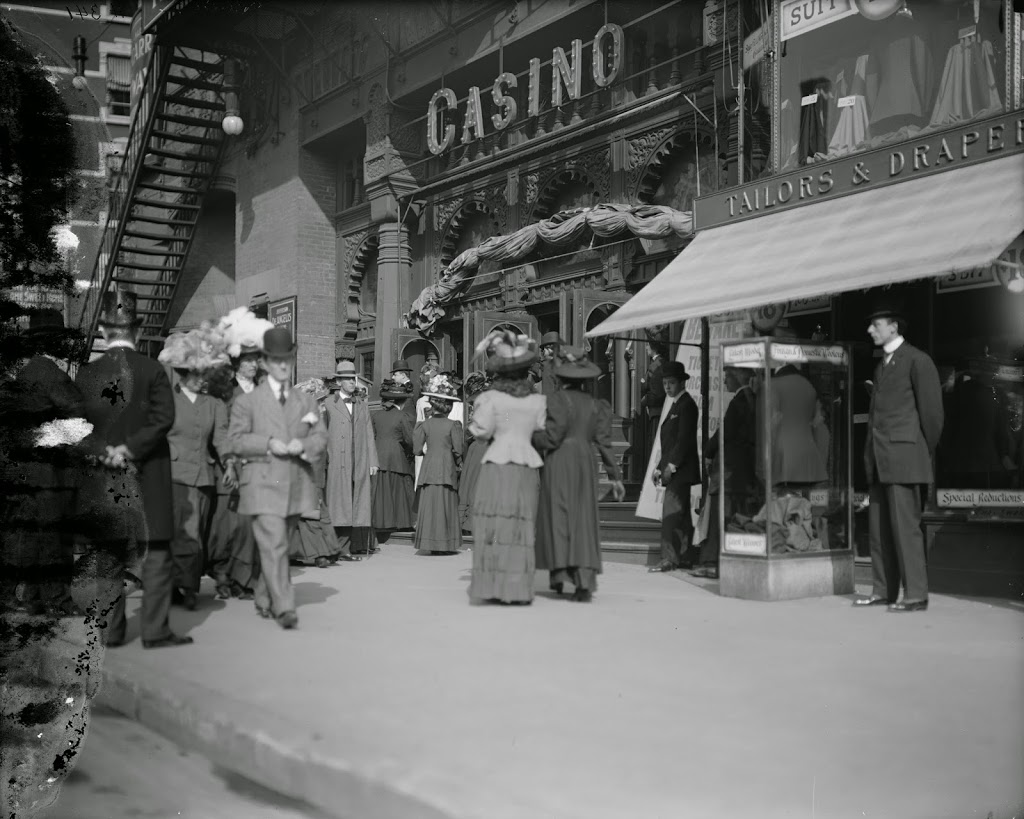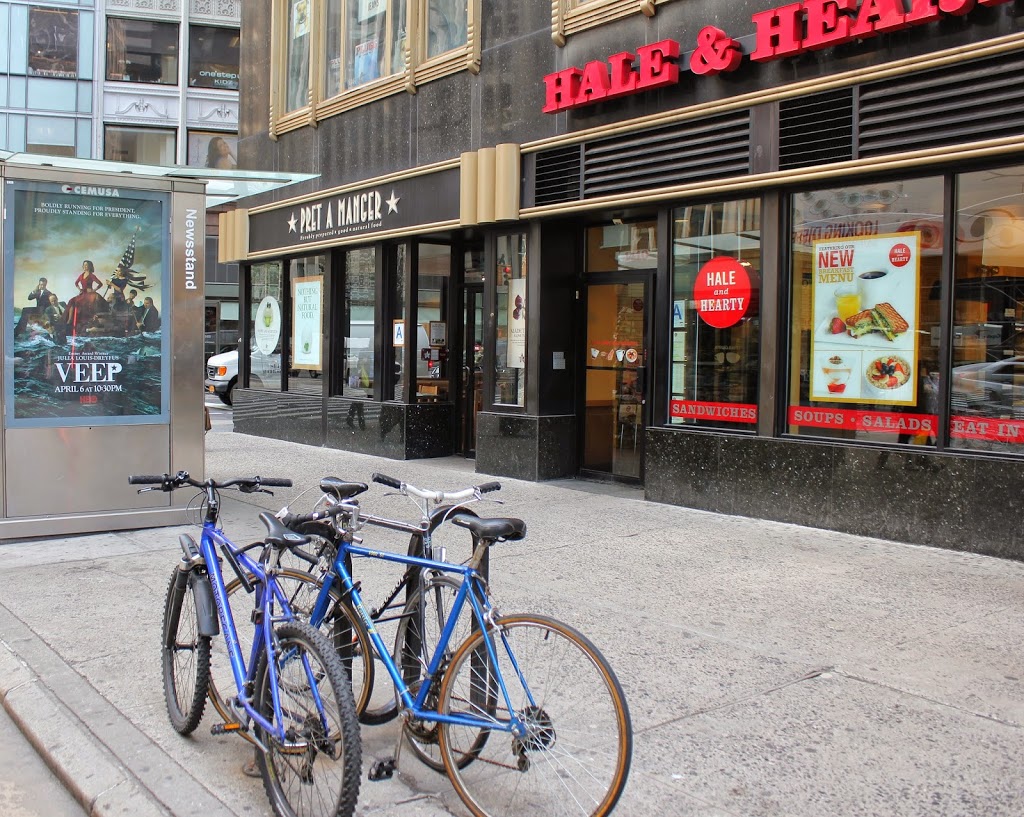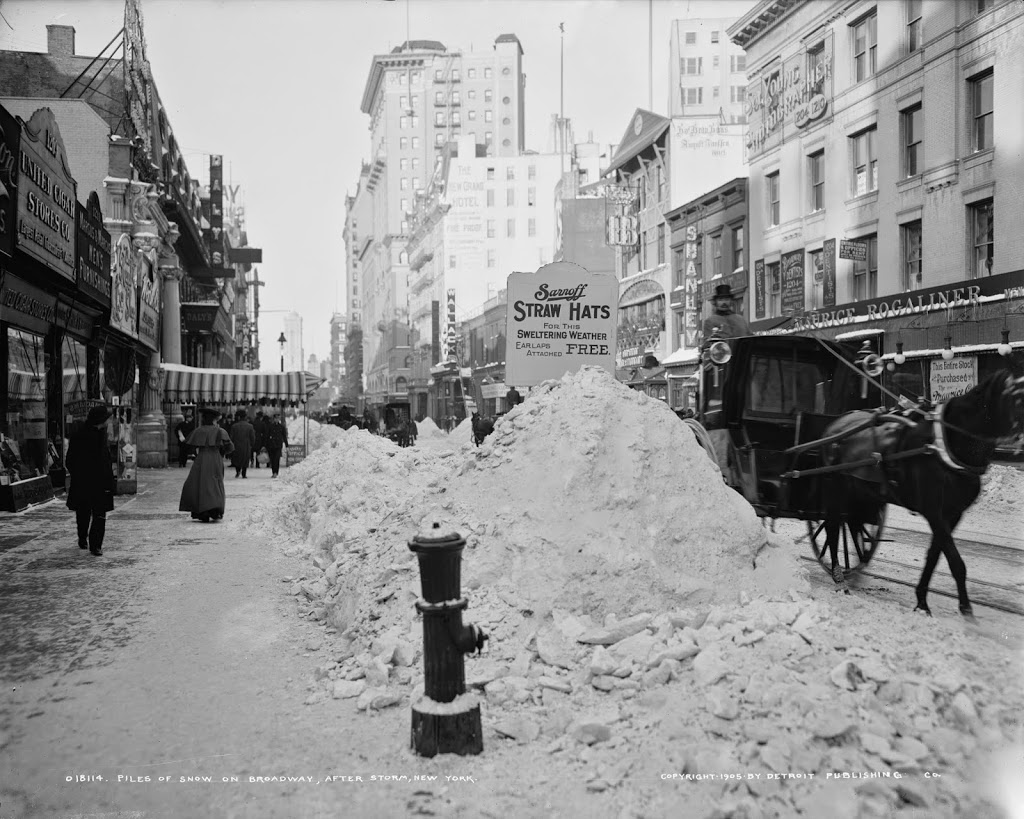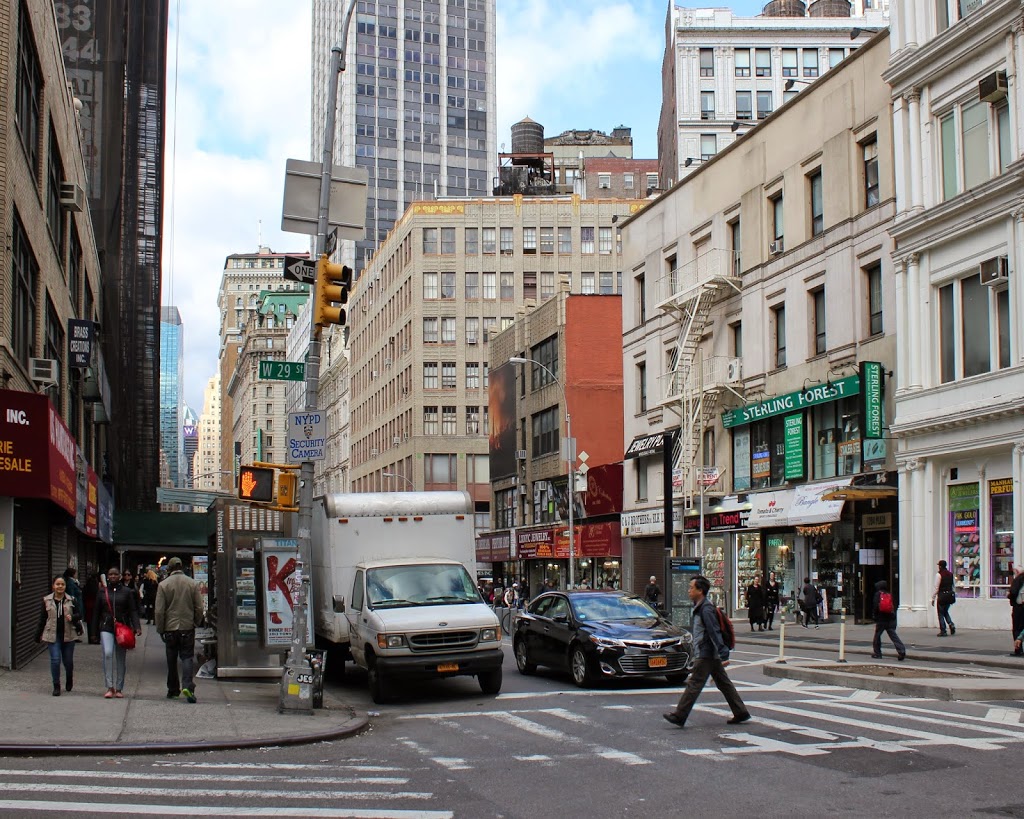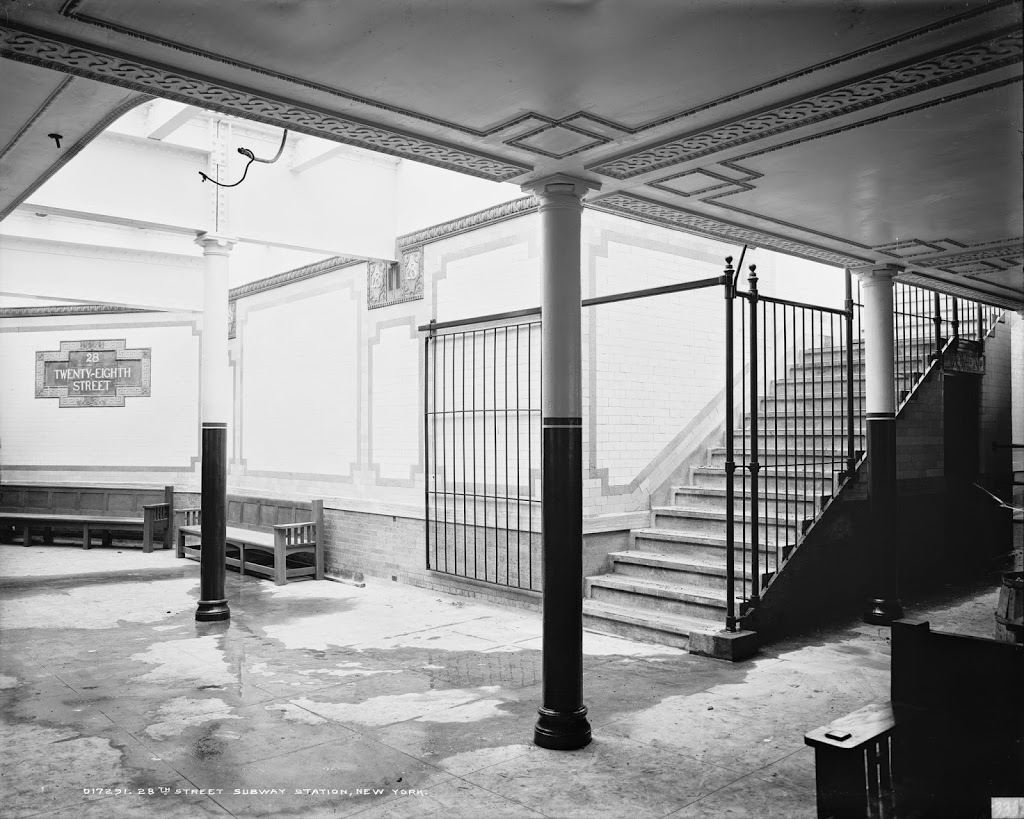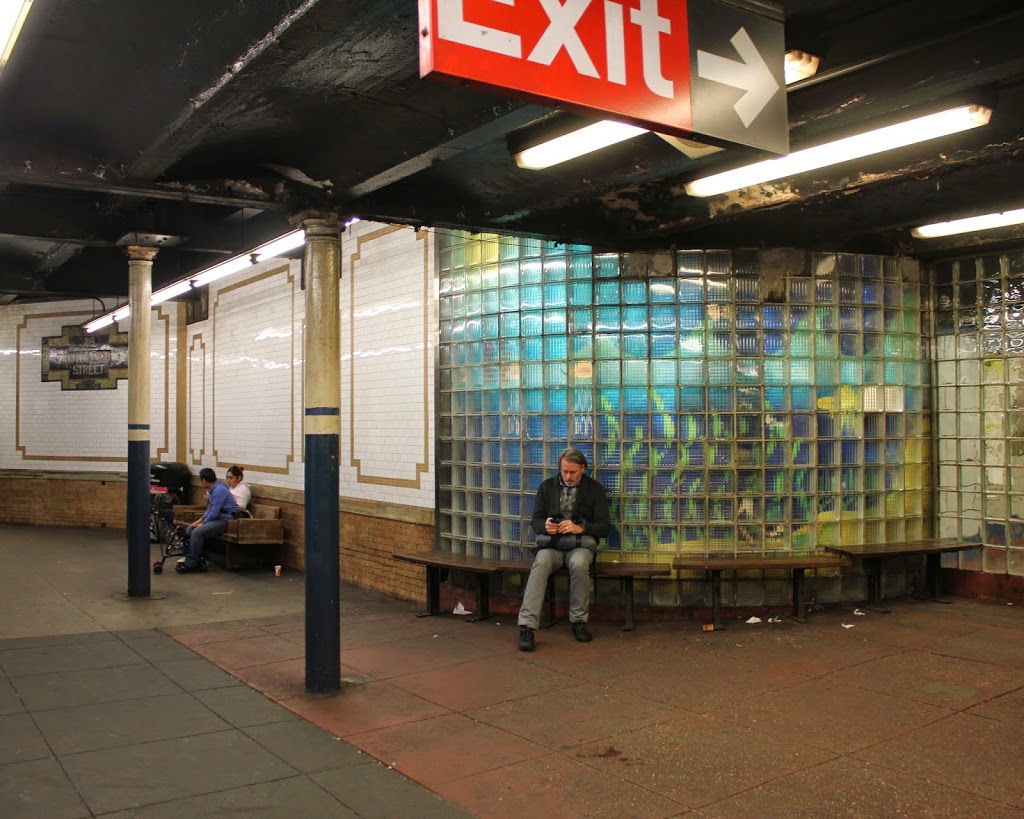Santa Claus at Herald Square, around 1903. Image courtesy of the Library of Congress, Detroit Publishing Company Collection.
The view in 2014:
Apparently this was before Santa put on some weight. I suppose 110 years of milk and cookies will do that to a guy. In any case, both photos show the scene looking north along Broadway at Herald Square. The Macy’s building is on the left in both photos, and the New York Herald building is partially visible on the far right. The Santa in the picture is collecting money for Ballington and Maude Booth’s Volunteers of America organization. The sign indicates that they are looking to raise funds to give clothing and shoes to 5,000 poor for Christmas.


